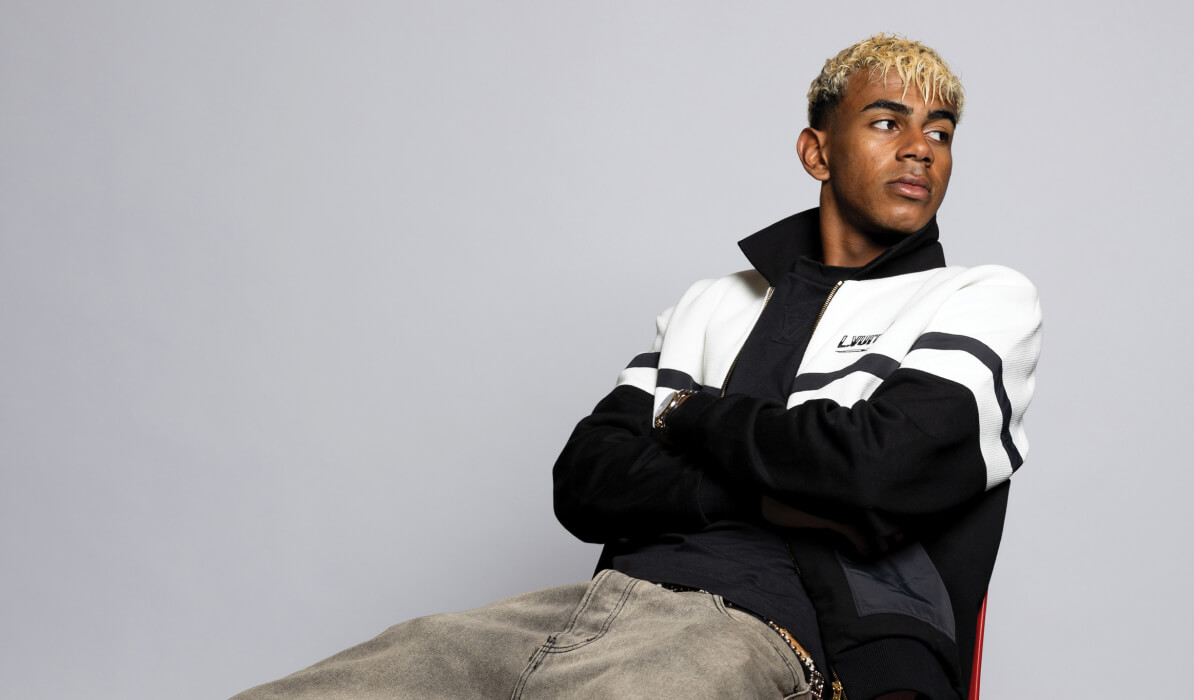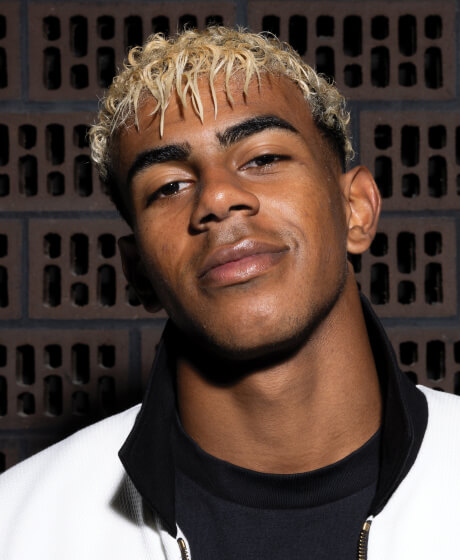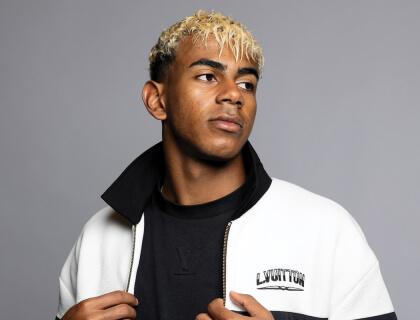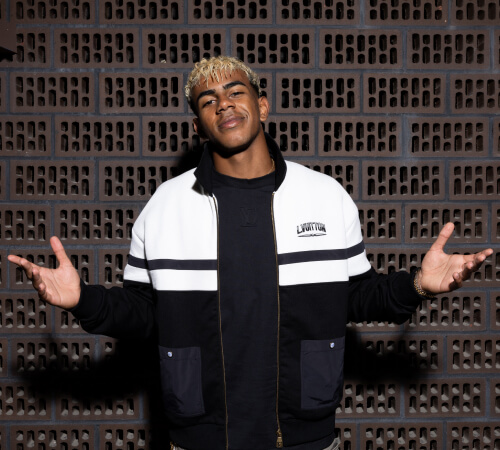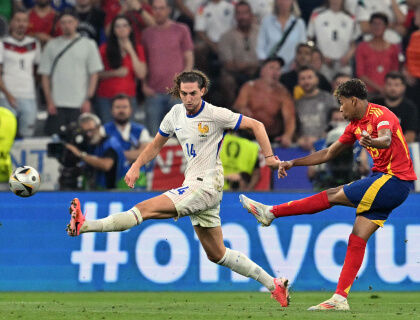It’s time to call in the expert witnesses: Flick, Luis de la Fuente and Jordi Cruyff. First, Barcelona’s German coach. I called Flick über-blessed because, by his own admission, he fell in love with the Blaugrana, and the Camp Nou in full voice, when visiting as a guest of Nike way back when Messi was a youngster beginning to thrill in such an extraordinary manner. It was the day Barcelona beat Getafe 3-1 in March 2006, more than a year before Lamine’s birth.
For Flick to now become the teacher who’s overseeing (and benefiting from) the winger’s exponential burst in confidence, thrills and impact – the nearest thing to Barça’s previous No10 genius – is, in footballing terms, like winning the EuroMillions lottery.
Initially, as befits a mature grown-up who has experienced the vicissitudes of life, never mind how quixotic and cruel the professional sporting world can be, Flick not only preached caution but employed careful, conservative adjectives when asked in press conferences about his young prodigy.
Finally, though, like everyone else, Flick yielded to the inevitable. After phrases like “He’s part of a good team,” “He needs to keep working, keep focusing” and “He played well but this was a squad performance,” about halfway through last season, the 60-year-old simply gave up boxing clever and admitted: “Lamine is a genius.”
His change in phraseology, and acceptance of the undeniable, was highlighted by the 3-3 Champions League semi-final first-leg draw with Inter in late April. “As a coach, the team is always all important, but obviously there are exceptional players and Lamine is one of them,” Flick said. “I’ll always say this: Lamine is a genius. What he does with the ball is literally incredible. Every pass has the right timing, the perfect weighting. To do what he does at 17 [as he was then] is genuinely amazing.”
Now take Lamine’s Spain boss, the 64-year-old De la Fuente, whose coaching fame before helming the national team entailed leading rookie sides to European titles as coach of La Roja’s Under-19 and U21 squads. In other words, the Basque is from a different, more conservative generation and someone who has experienced football genius at first hand – facing a certain Diego Armando Maradona when playing for Athletic Club against Barcelona. De la Fuente’s coaching excellence since has often involved drawing the best from rising stars while, at the same time, moderating expectations about their potential. Keeping everyone grounded – players, parents, fans, media. So even after he gave Lamine his Spain debut against Georgia in September 2023, the forward having just turned 16, De la Fuente repeatedly tried to follow the same pattern as Flick. Calm, hype-reducing language, and attempts to send steady-as-you-go messages to the player through what he said to the media.
I can give you a good example. Following a particularly sparkling display and a debut goal by his generational talent, I had the chance to interview De la Fuente, one on one, about half an hour after the final whistle. The coach surprised me by reaching back to Ancient Rome for an answer.
“The history of football is wonderful. It is full of great players, but Lamine has something that can make us think he could become one of the great geniuses of football, of our sport, in the coming years. We have to be very careful: he has to keep his feet on the ground and we have to help him progress and develop in the best way possible. I think the best way possible is by keeping him level-headed and doing what they did in Ancient Rome when they told Julius Caesar, ‘Remember, you are mortal,’ so that he would always keep his feet on the ground.”
Then, after Lamine scored the Goal of the Tournament at EURO 2024, to help defeat France and send Spain through to the Berlin final against England, De la Fuente also succumbed. About that utterly sublime goal Lamine fizzed into Mike Maignan’s top right-hand corner at a time when the eventual champions were losing 1-0 and struggling slightly, Spain’s coach told the post-match audience: “We’ve seen a strike of genius!”
In a subsequent chat with De la Fuente, he told Champions Journal: “It’s true that when I gave Lamine his debut, I’d had very little time to get to know him. He was very young and, really, hadn’t played all that much. But I have always believed in a sixth sense, and those of us who’ve reached a certain age have experience. That gives us extra clues about players, which is precisely what happened with Lamine – we saw great potential, a great talent. What’s more, when you get to know him, he has a good head on his shoulders for someone so young. He’s felt comfortable and been able to make the most of his considerable potential. He really has no limits.” Praise indeed.
